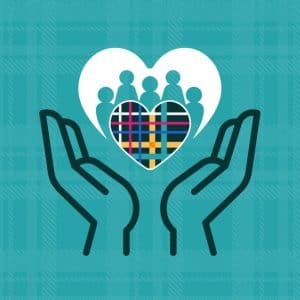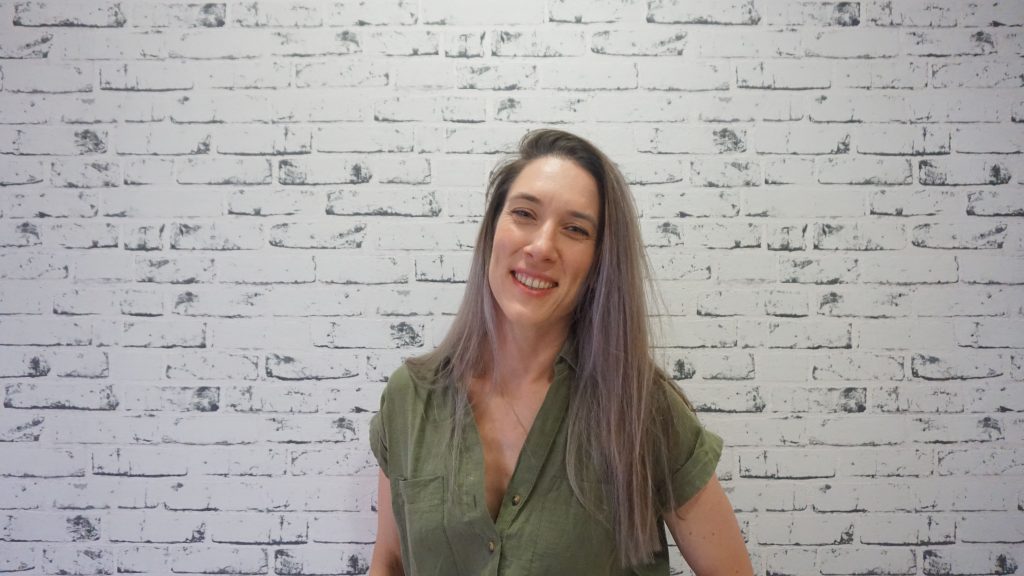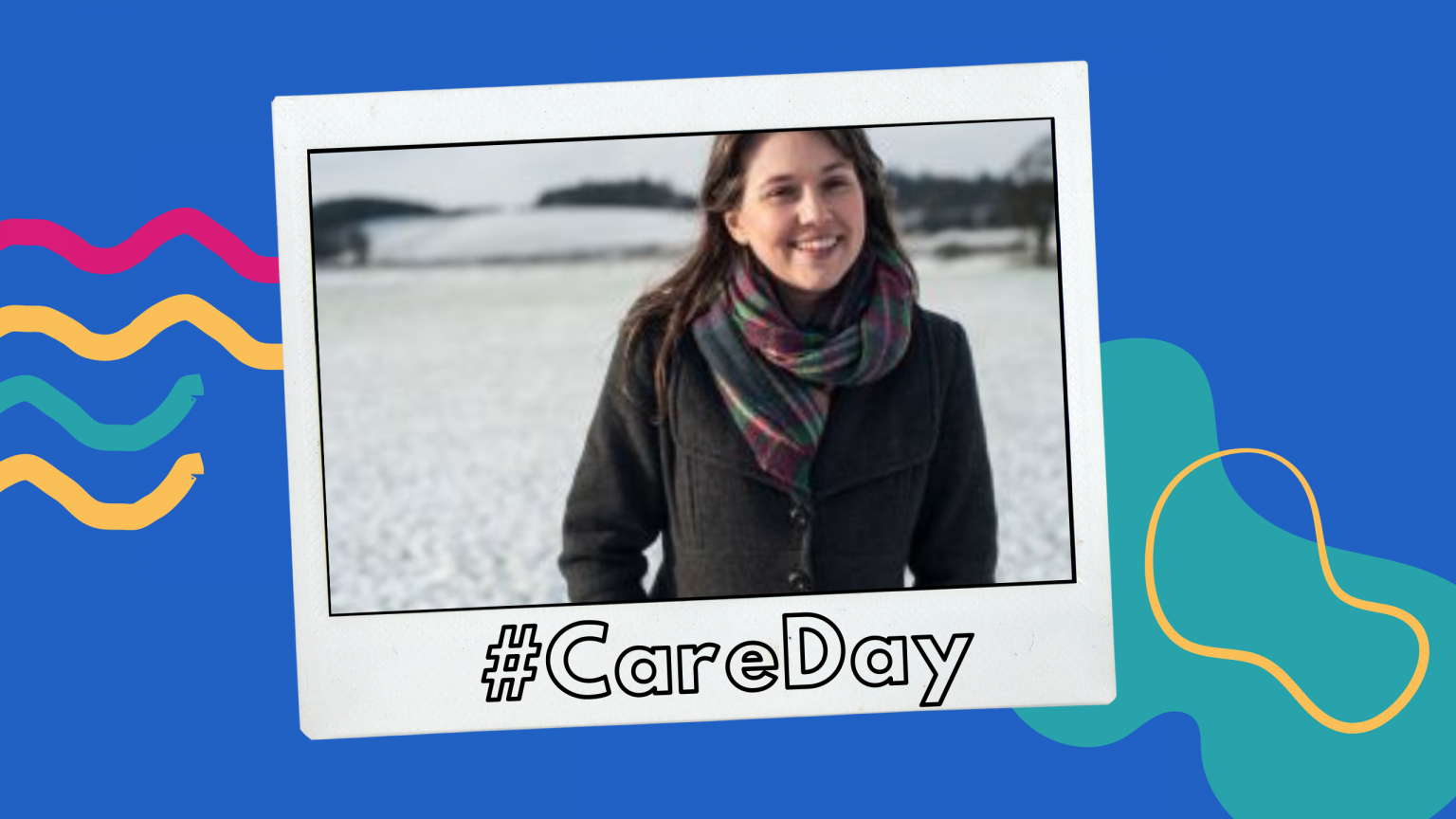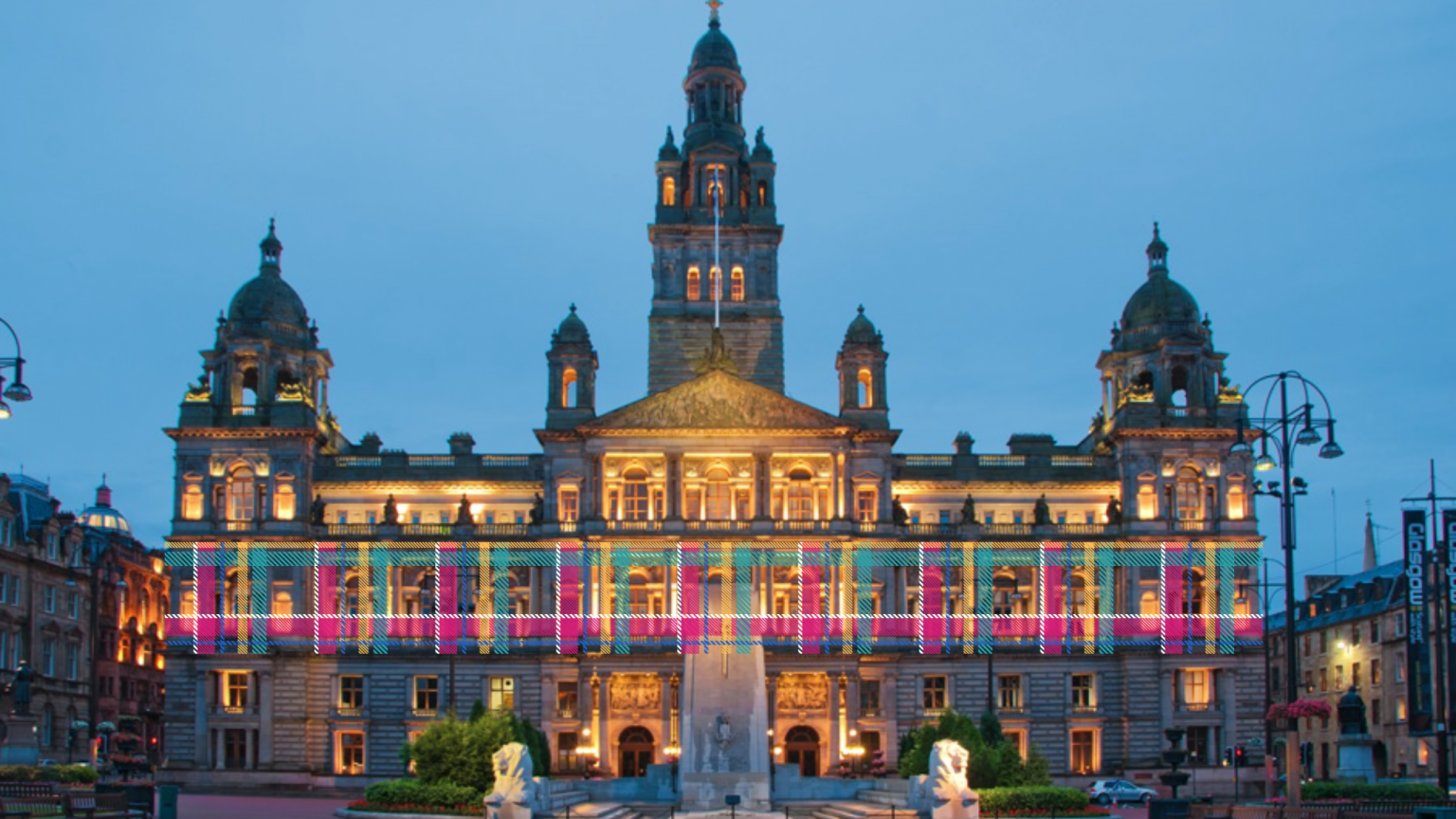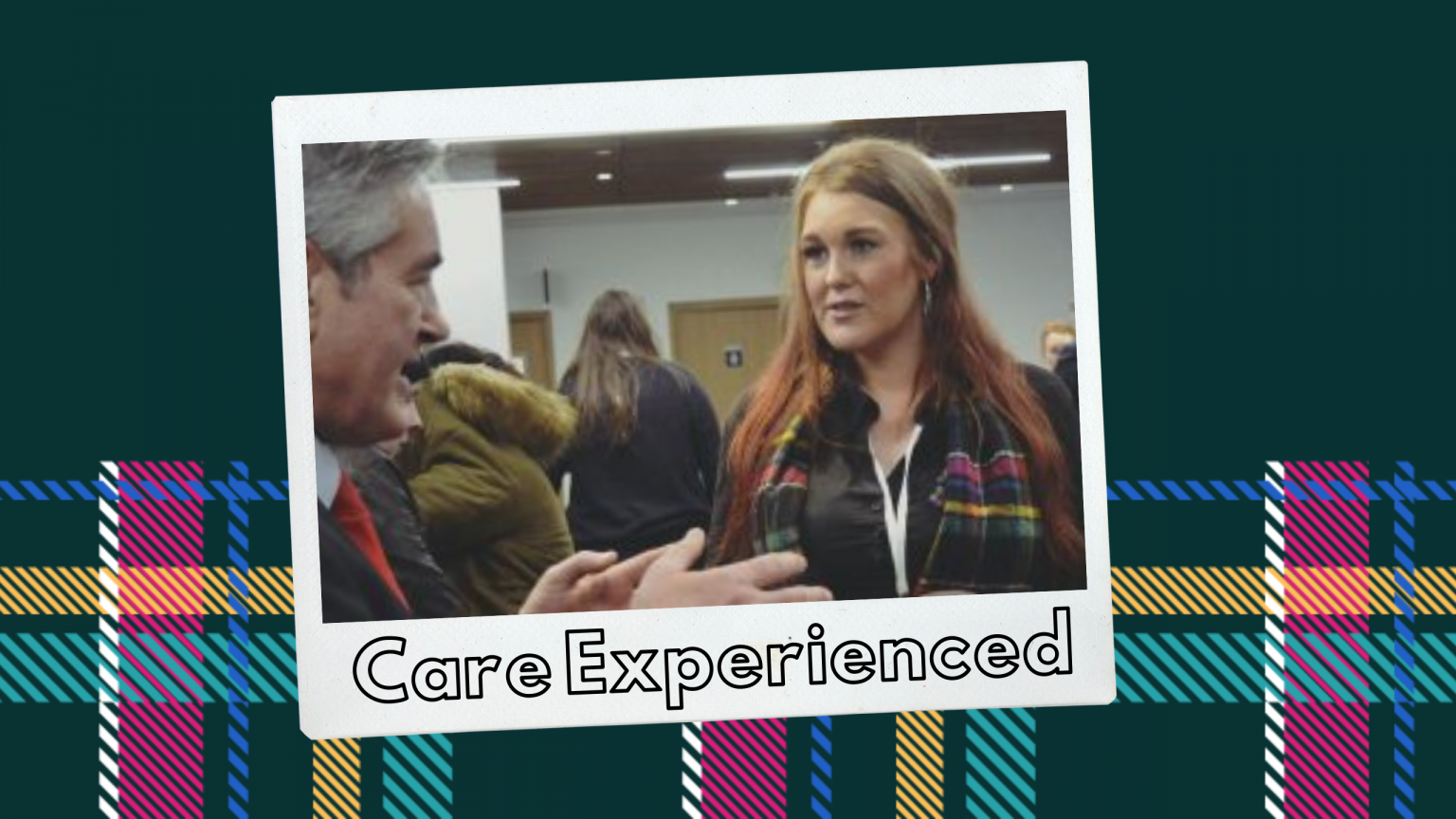When I first heard about our new national offer, a Helpline that would be a first point of contact for Care Experienced people out there who couldn’t rely on family and friends, I thought, “yes, sign me up”.
I felt that it would be a purposeful role to take up during the outbreak (whilst still wearing my pyjama bottoms), I thought it would add some much needed structure to my uncertain days and I knew I had skills to offer – listening and talking, mainly.
Ultimately, after years of supporting young people as an independent advocate, I knew there was a need for the helpline. I went through a list in my head of the brilliant people I have relationships with and how government guidance about relying on family and friends for support wouldn’t work for them. It was a no brainer that I would be involved. Care Experienced people are living the isolation and the uncertainty of the Coronavirus in the same way as everyone else. What’s different for many Care Experienced people, however, is that they were adrift before all of this happened. So it has made staying afloat even harder.
The helpline is intended to be a first point of contact for Care Experienced people who need us. We are not here to replace social work or those with duties and responsibilities to them. We’re there for the inbetween moments, when people don’t know who to turn to or want to talk through what options they are considering.
That’s why if you were to ask me to describe a typical day on the helpline, I couldn’t.
I’ve helped with phone top ups; referred people to advocacy; referred young people to services who have a legal duty to support them.
I’ve applied for funding on behalf of people; referred people who need support with income and work to our brilliant Lifelong Opportunities Team and I’ve arranged for food parcels to be delivered.
The only certainty is that we are here to take the calls, emails and texts that come in from Care Experienced people, and kinship carers, that need help. No two days are the same. No two calls are the same. I know that there are lots of things that stop people from reaching out.
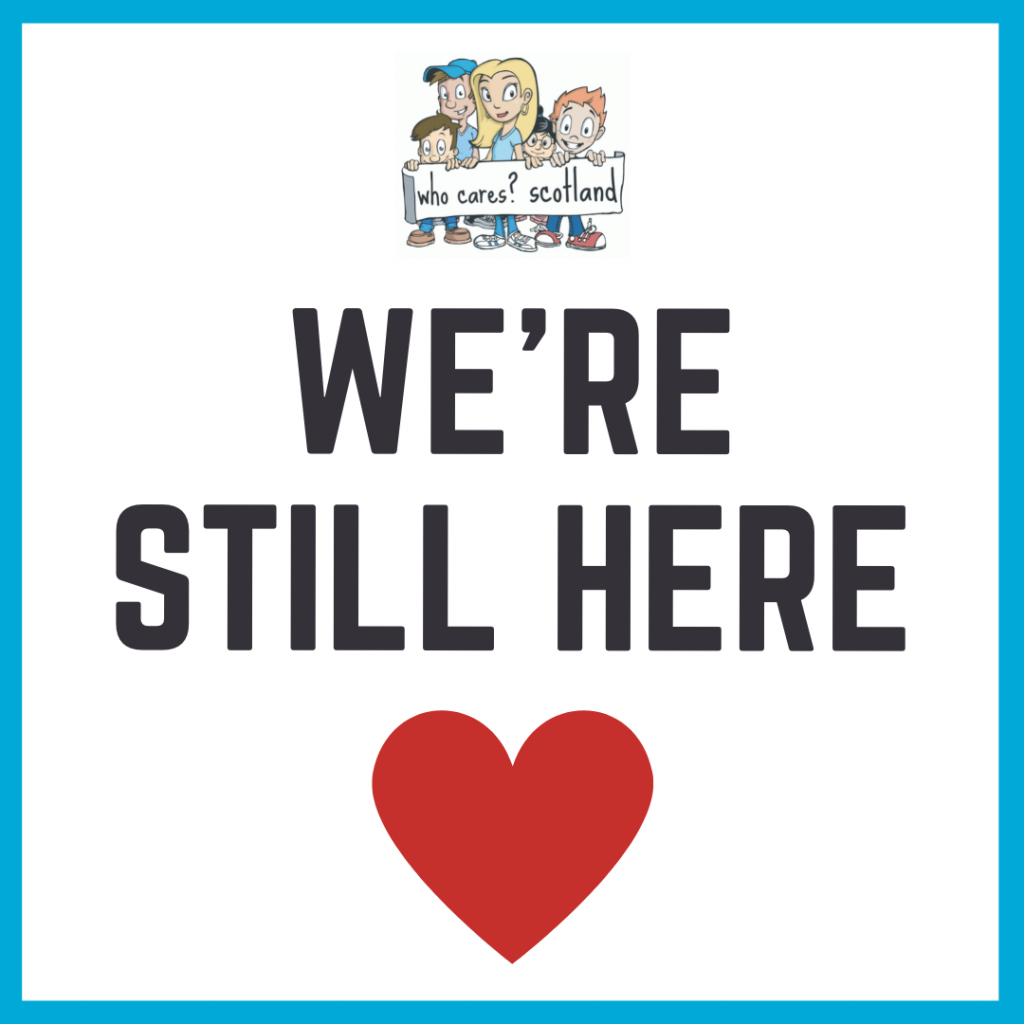
Some of us have struggled on our own for most of our lives, not knowing who to trust. I think about moments where I’ve had no option but to call a number, dependent on the person on the other end of the line to help me make something better. That’s why I start the calls that I answer by introducing myself, thanking the person for calling and acknowledging that this might have been a difficult call to make.
I had a call two weeks ago from a young woman who hasn’t previously engaged with Who Cares? Scotland. She shared so much of her life with me.
She was so real and raw during our conversation that I saw her. I felt her. She was a brilliant, smart and determined woman who had been left so far out at sea that either no one could see her or going out to get her just seemed too hard.
During the call I was able to ease some financial stressors that she was experiencing and then, because she had given me such a clear picture of the challenges that she was facing, I hung up the phone and cried. I went onto make a successful fund claim for her. She was really happy to receive this and has since been linked in with a local advocate.
We’re so determined that, rather than simply helping someone offload a financial burden, we help them access everything that they are entitled to.
That’s why we’re offering the people who want it independent advocacy too. The call that she made was the first step in a process which, I hope, will open up lots more opportunity.
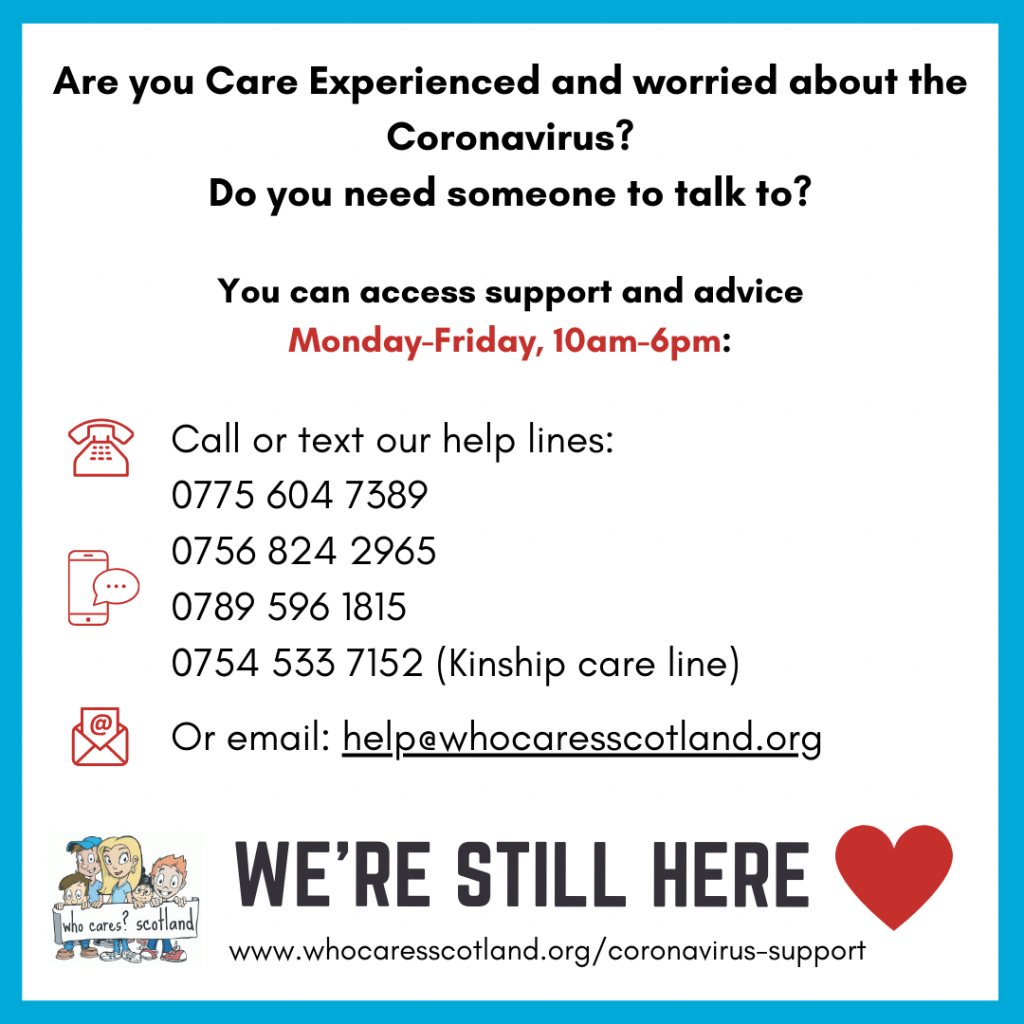
A recurring theme from many of the calls I have received is gas and electricity provision. The Government enforced lockdown has resulted in usage of these increasing, and because of this Care Experienced people are living in fuel poverty.
We’ve been providing top ups for gas and electricity to ensure that people can heat their home, cook their dinner and be as comfortable as possible during lockdown. I received a call from a young man who lives in his own flat. He had arrears on both his gas and electricity prepaid meters, which meant he had to pay £48 a month to his clear his debt before he could even switch something on. Before he called the helpline, he had had no hot water for 3 weeks.
I was able to clear his debt just a couple of hours after his initial call and he was so thankful for that. He phoned me to tell me he had water. I cheered and we laughed. It was hard not to think to myself seriously, cheering hot water?! He should never have been without it. Prepaid meters are the most expensive and precarious way to pay for utilities and yet, they exist mostly in the homes of the people with the least money. There has to be a better solution.
Each day on the helpline is cathartic, emotive, humbling. It is fueling the fire within me; the burning desire to push forward for change; to fight the injustices I’m hearing about on every call.
I run every night I’m on the helpline. This helps me to process the day, the emotions I’ve felt and the feelings they’ve stirred within me. Selfcare, in whatever form that takes, feels vital right now.
Our strategic vision has never felt more relevant – a lifetime of equality, respect and love. The helpline is introducing new people to Who Cares? Scotland. I hope they become members as I would love to meet them in person and welcome them to the care family. I have also been reconnecting with old members we haven’t heard from in a while. We are a family and the door will always be open for you to find your way back. We advocate, we promote rights, we challenge stigma, we trust, we promote collaboration and we hold others to account.
We should not be afraid to ask what are local authorities doing? What are corporate parents doing? What are communities doing? What else could we be doing?
I’m in awe of how quickly we responded to this crisis which has highlighted enormous gaps in provision and support for Care Experienced people. We’re reflecting and learning as we go on. We don’t want this new reality to last forever and we hope that statutory services catch up with Care Experienced people’s needs. We will be here just as long as we need to.
To members old and new and to those Care Experienced people who haven’t reached out to us yet, I would like to say please don’t be afraid to get in touch with us. Know that you are worthy of help and support. You deserve to be listened to and respected. Where you are is not where you have to be and it isn’t your fault.
We’ll listen, we’ll really hear you, we’ll help in any way we can; be it emotional support, financial support, employment, advocacy or linking you in with fun participation groups and connective membership opportunities.
I’ll leave the last words of this blog to a young man who messaged me this week. He sums the feeling up way better than I ever could, “Thank you so much for your help, honestly blessed”.
Stay safe, stay connected and I’ll see you for the biggest hug when this is all over.
Love,
Jemma
